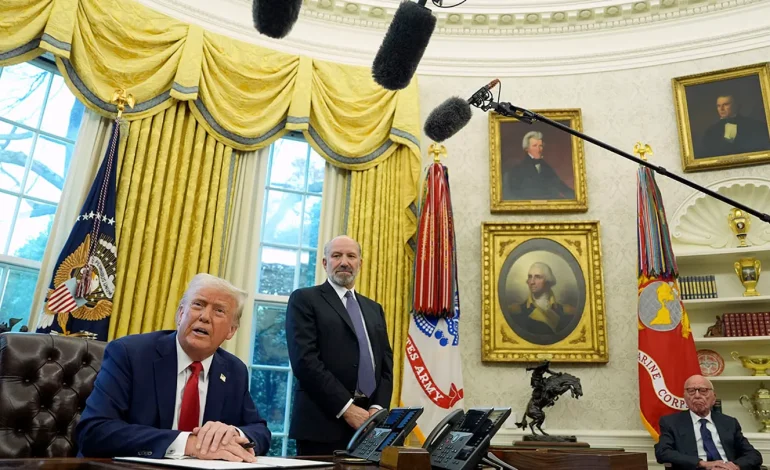Commerce Department Cuts $4 Million in Climate Research Funding to Princeton University

The Department of Commerce announced Tuesday it is cutting $4 million in climate research funding to Princeton University, effective June 30, Fox News reports.
The decision was made after what Commerce Secretary Howard Lutnick described as a “detailed, careful, and thorough review” of the department’s financial assistance programs against NOAA’s current program objectives.
According to a press release, the department believes the termination of funds “will streamline and reduce the cost and size of the Federal Government, consistent with President Trump’s promise for his Administration.” Princeton University received $455 million in federal funding during fiscal year 2024.
The department stated that the financial awards previously granted to Princeton through NOAA, specifically those related to the Cooperative Institute for Modeling the Earth System (CIMES), “are no longer aligned with the program objectives of NOAA, a sub-agency of the Department of Commerce, and are no longer in keeping with the Trump administration’s priorities.”
CIMES’ website states the program contributes to the development of oceanic and atmospheric models, conducts research on climate and biogeochemical cycling, and trains postdoctoral researchers and graduate students.
However, the Commerce Department argued that the CIMES agreement “promotes exaggerated and implausible climate threats, contributing to a phenomenon known as ‘climate anxiety,’ which has increased significantly among America’s youth.”
The department also cited concerns with the Climate Risks and Interactive Sub-seasonal to Seasonal Predictability agreement, claiming it “suggests that the Earth will have a significant fluctuation in its water availability as a result of global warming.” Similarly, the Advancing Prediction agreement was criticized for allegedly using its resources to assess risks associated with climate change, including alleged changes to precipitation patterns and sea-level rise.
The department asserted that the goal of terminating these funds is to save US taxpayer dollars.
“The Department will continue to review its outstanding cooperative agreements, grant awards, and other financial assistance on an individualized basis to avoid wasteful governmental spending — whether they be to Princeton or any other recipient,” the release stated.
This decision comes at a time when colleges and universities across the country are facing increased scrutiny from the Trump administration, particularly regarding alleged antisemitic discrimination and harassment. The administration has previously cut federal funds to certain schools that allowed anti-Israel protests on campus following the October 7, 2023, attack on Israel. While the Department of Commerce statement did not directly link the funding cut to Princeton to these concerns, the move adds to the atmosphere of tension surrounding federal funding and academic freedom on university campuses.









The latest news in your social feeds
Subscribe to our social media platforms to stay tuned